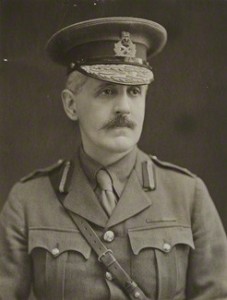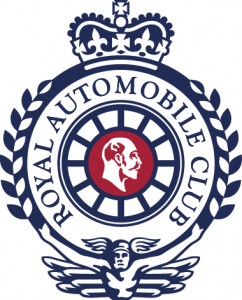Fabian Ware: Royal Automobile Club Volunteer

Visionary Fabian Ware, Royal Automobile Club volunteer and founder of War Graves Registration.
(Wiki Image)
Director of War Graves Registration Commission
The Royal Automobile Club (RAC) was founded in 1897 and in August 1914 a group of RAC volunteers offered their services to the British Expeditionary Force (BEF). Known as the Royal Automobile Club Corps of Volunteer Motor Drivers, twenty-five RAC members were attached to the BEF. Using their own vehicles the volunteers provided chauffeur and messenger services for the British General Staff.
A month later, in September 1914, other RAC members offered themselves and their vehicles to assist the British Red Cross in the transport of casualties becoming the British Red Cross’ Motor Ambulance Department. One volunteer, Fabian Arthur Goulstone Ware, was previously the editor of the Morning Post (1905 – 1911) and, prior to 1914, a consultant for the metals and mining firm of Rio Tinto Ltd. conducting negotiations with France regarding zinc.
Ware commanded a motor ambulance unit that was engaged in searching for British wounded and missing in Northern France. The unit soon added medical staff and a mobile light hospital and found themselves working extensively with the French. After dealing with some 12,000 casualties the unit was disbanded. However, during this time of operational service, Ware had become cognizant of the lack of any war graves registration records…no active recording or marking of war graves of those who had been killed was taking place.
Ware set about to create an organization to deal with these omissions and in 1915 Ware and his team were transferred to the British Red Cross. With the new organization Ware, in May 1915, became a Temporary Major though his contract recognized his work in this area had commenced in February 1915. The new organization worked quickly and by October 1915 over 31,000 graves were registered increasing in May 1916 to 50,000. About this time Lieutenant Colonel Fabian Ware was made Director of War Graves Registration and Enquiries, subsequently promoted to Major-General, and continuing in this position until war’s end. For his work with the Commission Fabian Ware was created a Companion of the Order of the Bath (1919) and Companion of the Order of St. Michael and St. George (1917).
During the course of the war it was recognized that this important work needed to be continued and maintained post-war. Fabian Ware would continue to be part of this vision.


Comments